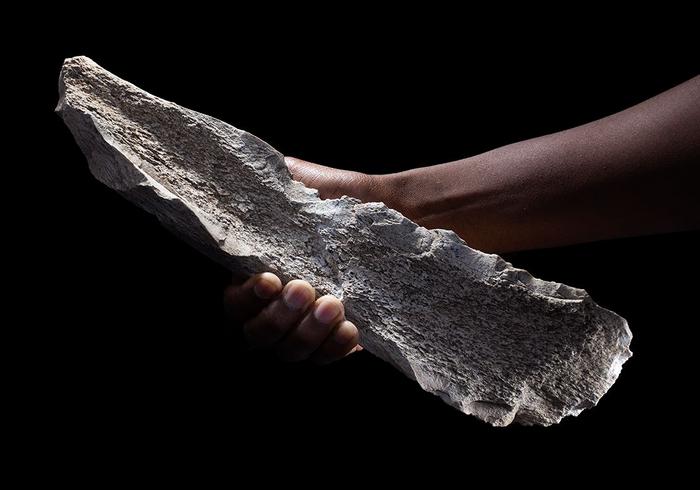Bone Tools One Million Years Earlier Than Previously Thought
Archaeologists have discovered a collection of prehistoric animal bones in Tanzania that suggests early humans figured out how to transfer tool-making techniques “from stone to bone” 1.5 million years ago
Margherita Bassi
Daily Correspondent
March 6, 2025 5:16 p.m.

A bone tool shaped on a 1.5-million-year-old elephant humerus CSIC
While early human ancestors started making stone tools at least 2.6 million years ago, bone tools took much longer to appear. The earliest signs of a regular use of bone tools hadn’t shown up in the archaeological record until around 500,000 years ago—but a new discovery is changing that timeline dramatically. Now, archaeologists have uncovered dozens of bone tools in East Africa that push that date back by one million years.
The findings, which are rewriting the history of early tool-making, are detailed in a study published Wednesday in the journal Nature.
“This discovery leads us to believe that early humans [... added] new raw materials to the repertoire of potential tools,” lead author Ignacio de la Torre, an archaeologist at the Spanish National Research Council, says in a statement.
It “hints at advances in the cognitive capacities and mental templates of these hominins (i.e., hominids with a bipedal locomotion), who understood how to transfer technical innovations from stone flaking to bone tool production,” he adds.
The researchers unearthed 27 bone tools between 2015 and 2022 in Tanzania’s Olduvai Gorge, which is part of a UNESCO World Heritage site dubbed the “Cradle of Humankind” for its previous archaeological discoveries. The region has made an “unparalleled contribution to our understanding of early human evolution,” as study co-author Jackson Njau, a paleoanthropologist at Indiana University, tells CNN’s Ashley Strickland.
At 1.5 million years old, the trove of artifacts represents the oldest large collection of bone tools known to archaeologists. Due to the sheer number of artifacts and the way that they all date to the same time period, the team suggests our ancestors were intentionally—not rarely or sporadically—mass producing bone tools.
More:
https://www.smithsonianmag.com/smart-news/human-ancestors-were-making-bone-tools-one-million-years-earlier-than-previously-thought-180986175/
